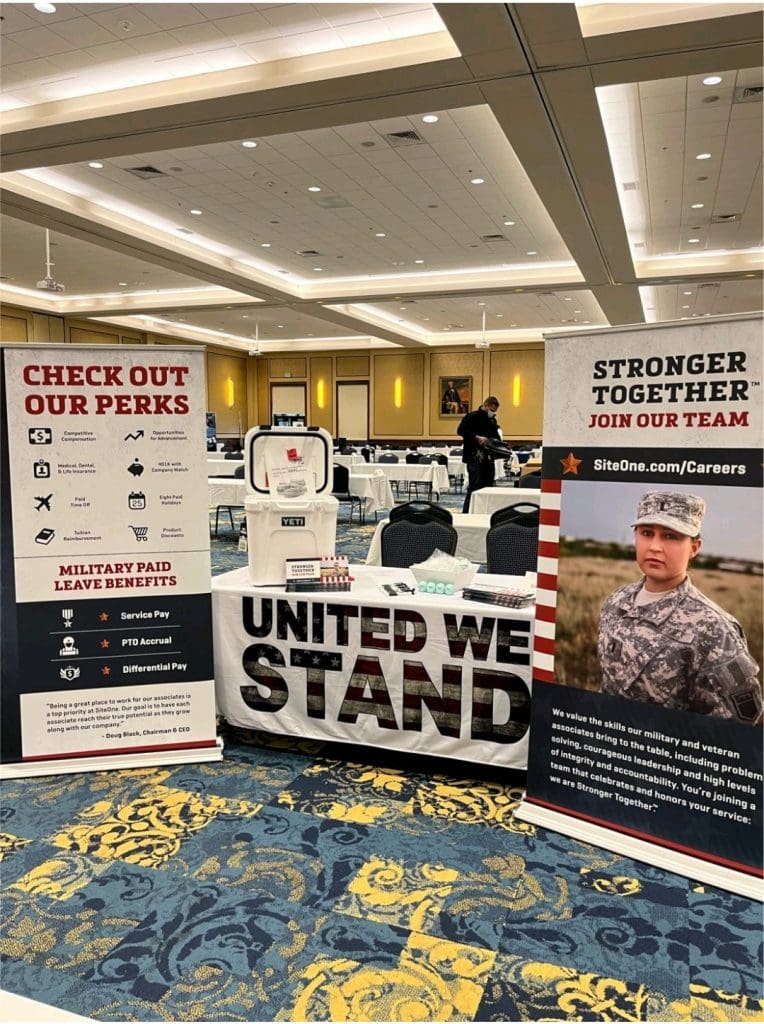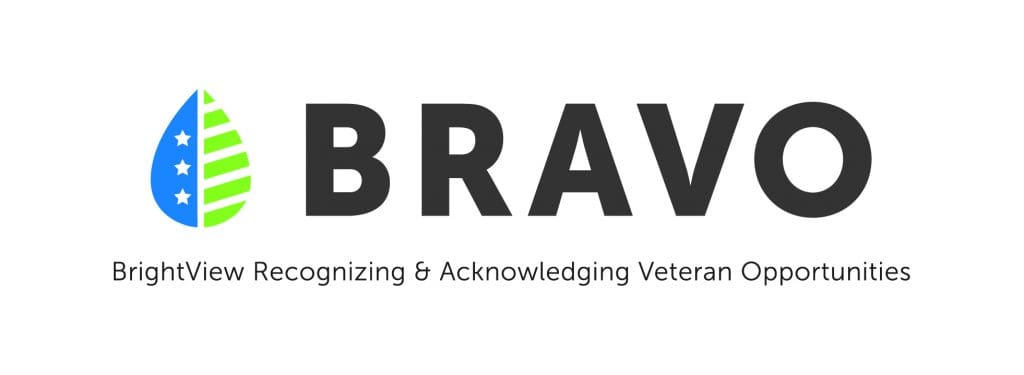
You probably already know that veterans are reliable, trainable team players that can be a welcome addition to any lawn or landscape company. However, you might be uncertain how to get connected to those who are making the transition from military service to civilian life.
At SiteOne, they have made veteran and military spouse recruiting an intentional part of their diversity strategy.
“I am in awe of people who have given part of their life in the service of our country and inspired by them and the families who have supported them through deployments and sometimes multiple relocations,” says Michele Posehn, senior recruiting manager of diversity/early talent initiatives for SiteOne. “With veterans, companies are getting an associate who can get the job done.”
How To Recruit Veterans
Elly Zemetra, senior director of talent management for BrightView, based in Blue Bell, Pennsylvania, says they partner with local military bases and participate in veteran job fairs and hiring events.
Similarly, Yard Solutions, based in Groveport, Ohio, is located near some reserve units. Joe Lewis, COO of Yard Solutions, says they have partnered with these units and have career talks about opportunities in the industry. He advises understanding what type of unit you’re speaking to, such as logistics, heavy equipment operators or infantry supply chain management.

“It helps a lot because the reservists, you’re either going to have people that have a career already in the civilian community or they’re students,” Lewis says. “What you find typically in the reserves is they tend to be higher educated at a younger rank than what you find in the fleet.”
Aside from partnering with local bases, there are a number of different organizations and resources available that helps connect veterans with good companies like the DoD SkillBridge and Hire Heroes USA.
Posehn says SiteOne started working with an organization called Hiring Our Heroes in 2022, where transitioning veterans and their spouses participate in a fellowship program similar to an internship.
“These candidates work side by side with SiteOne associates in various departments, learning our business and bringing their talents in areas like transportation and supply chain,” Posehn says. “I am very proud to say that to date, we have hired each of our Hiring Our Heroes fellows as full-time associates. Currently, we are in the process of reaching out to candidates to participate in the program for early 2023, and I’m proud to say we have more than doubled the number of managers looking to participate in this program, a testimony to not only the commitment to veteran hiring by SiteOne but a firm demonstration that we understand the tremendous talent veteran hires are.”
When trying to recruit veterans, understand which job positions you have that relate well to military experience. Lewis says one of the main attractors for veterans is companies that provide a sense of fulfillment and make an impact.
“They’re hanging up a uniform where they felt, even on a worse day, that they’re making a difference,” he says. “So, can they do that with your company?”
While the landscape industry isn’t a life or death matter, Lewis argues you are helping people improve their lives.
Ana Valentin, director of human resources for SiteOne, suggests providing guidance for hiring managers on interviewing veterans and translating their military experience. Posehn agrees that it can be difficult for hiring managers to see the correlation between the job they are hiring for and what’s on a resume if they are unfamiliar with military terms or roles.
“In that case, I always encourage managers to speak to those in their organization who have a military understanding and can hopefully clarify how the veteran candidate can match up to the requirements of the role,” Posehn says. “There are many tools out there to help with translating military skills and hiring managers should use them.”
When interviewing veterans, Lewis suggests asking what it meant for them to serve and listening to their responses. See if that aligns with your company as a whole and your core values. While hiring someone with a military background can be beneficial, Lewis stresses you still need to make sure that individual fits with your culture.
“They’re people, you just understand they’ve been trained and they’re trainable,” Lewis says. “It’s either a good fit or it’s not, but you don’t know unless you reach out.”
How to Retain Veterans
Veterans thrive on a sense of community and continuous improvement, so it’s important you provide open feedback opportunities and channels. BrightView does this through their veteran employee resource group, called BRAVO, which allows executive leaders to stay connected to the concerns that are important to their veterans.

Similarly, SiteOne has a veteran associate resource group called VETS1 that allows their veteran employees to connect with one another.
“It’s important for companies to solicit feedback from their associates to understand the challenges they may face and to apply that feedback to their policies and practices,” Valentin says. “Whether it’s providing military leave benefits or helping veteran associates create a sense of community at work, engaging with them to understand their needs will go a long way in retaining them.”
Zemetra says while veterans are adaptive, you still need to provide them with a proper support system, tools and training to help them transition to a civilian workforce and the corporate world.

